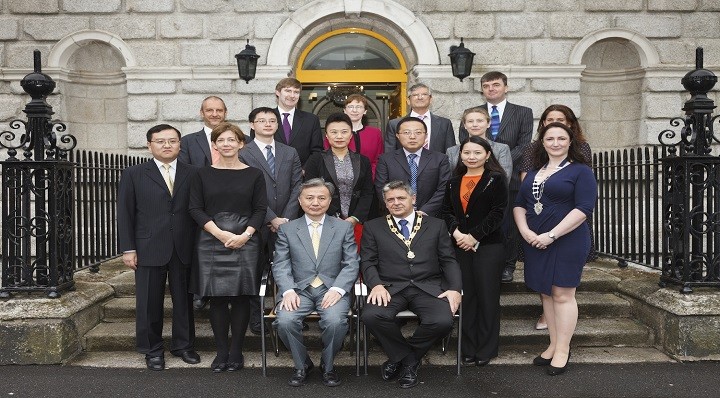
Peer to Peer Exchange on the Reform of the PRC Patent Law-Study Visit to Europe by LAC
A delegation of the Legislative Affairs Office of the National People’s Congress (LAC) carried out a study visit to Europe (Ireland and Denmark) from the 2nd to the 8th July, organised by IP Key.
The members of the LAC delegation met EU experts from the relevant ministries, judiciary, IP practitioners and industry to share views and learn from best practices on several issues in the current agenda of reforms for the Chinese Patent Law.
The meetings with the Irish ministry in charge of patents administration, the Danish Patent and Trademark office as well as with the Irish and Danish Courts dealing with IP litigation, focussed on the revisions of the respective national patent laws, opposition revocation procedures as well as the current developments on the European Unitary Patent system and Unified Patent Court, in view of the Chinese endeavours to create specialised IP courts.
The Chinese delegation also learned about the respective government policies and legislation to foster innovation. A session dedicated to the Registered Community Design and its complementarity with the national systems for protection of industrial designs, completed the institutional sessions.
IP practitioners and industry representatives praised the impressive progress made by SIPO in the last years to reach the present level of professionalism and performance. They took advantage of the exchanges to raise two punctual concerns for European industry, namely the acceptance by Chinese examiners of post-filed evidence as support and the importance of the Supplementary protection Certificates (SPC’s) for certain industries.
It is expected that successive exchanges between EU experts and the members of LAC’s team will continue to foster a platform to share views, experiences and best practices on substantive and procedural issues concerning the Chinese patent law. In this regard, a follow up workshop in China is planed for November 2014. It will elaborate on the outcomes of the study visit and provide further opportunities for exchanges of views between the EU and Chinese experts.
